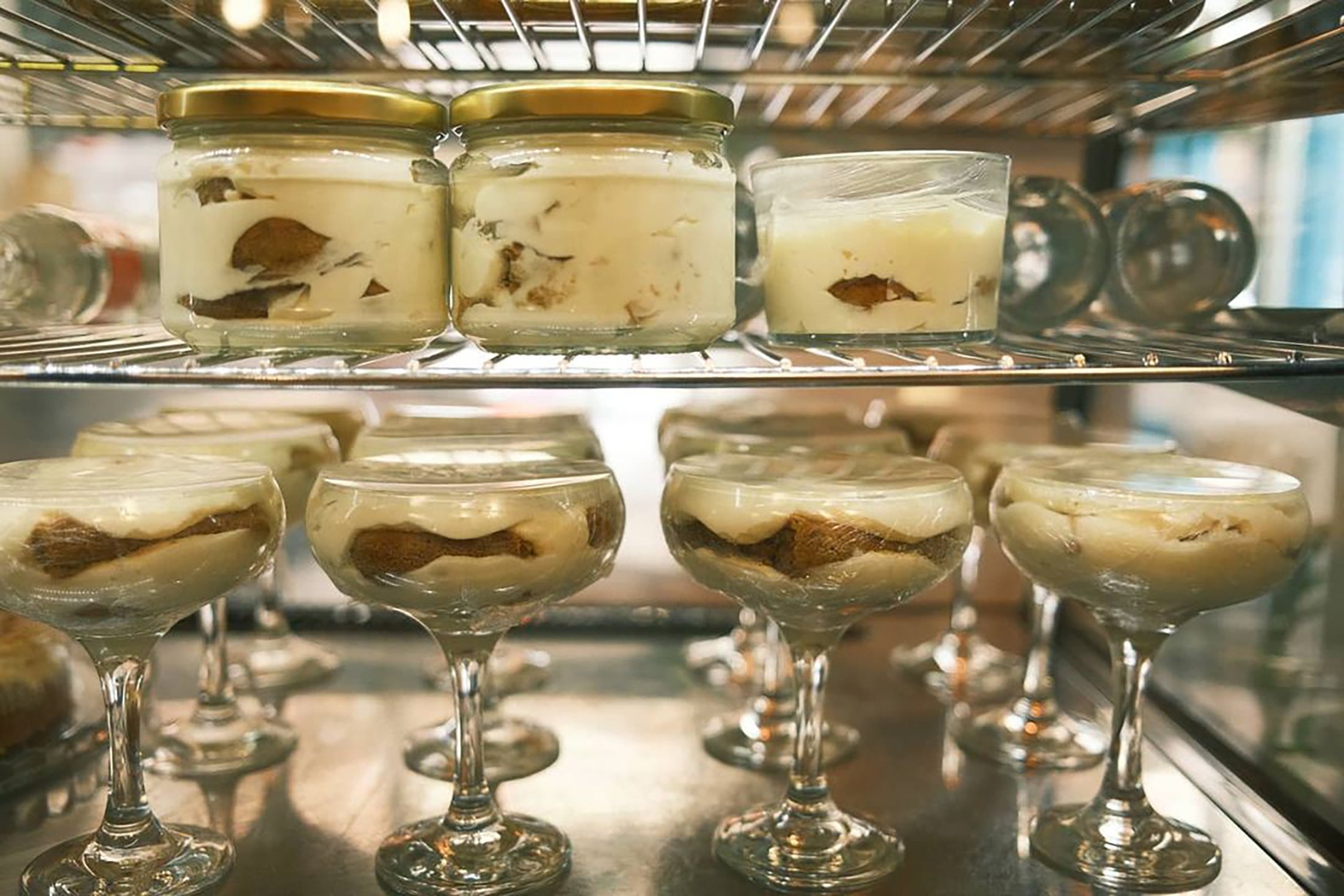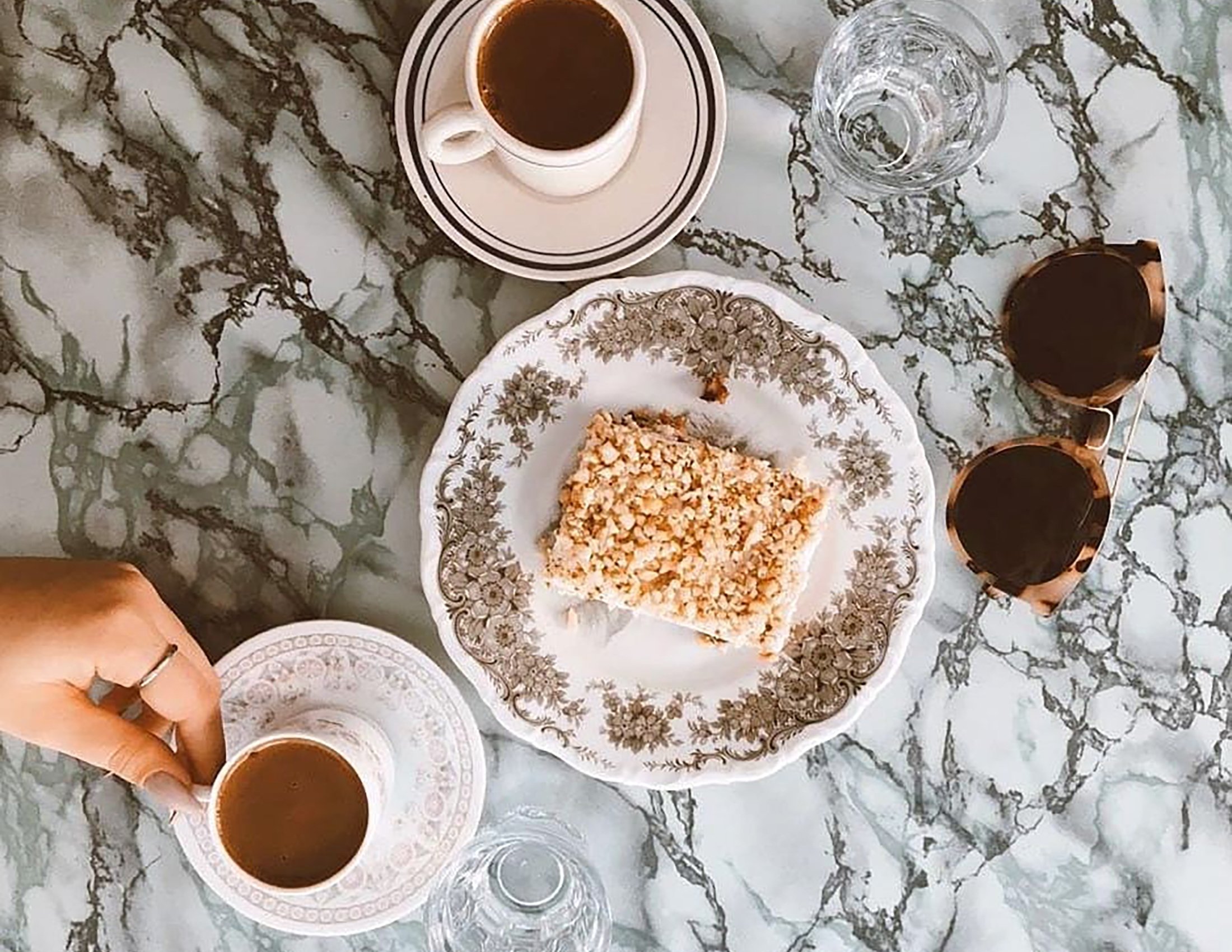© Turkuvaz Haberleşme ve Yayıncılık 2026
The iconic poster of the 1984 film “Fahriye Abla” is the centerpiece of interior design at the eponymous cafe, Fahriye, where the mood is enlightened by a cineaste’s feast of books and artworks that grace its walls, lining its shelves, and issue from the mouths of its conversationalists, their breath heavy and richened by the coffee served from the bijou establishment’s welcoming counter.
On an early spring morning some years ago, a couple of roommates walked down the street from their shared flat just a hop, skip and a jump away around a few corners. She was from Adana and proud to say it, calling herself a native of the sweetest part of the heart of Anatolia. And he, he was from the south shore of Massachusetts, not far from Boston, though far, far from those lands across three seas and an ocean.
They were talking about a few things. She wanted to take a little inner-city vacation to the biggest of the Princes' Islands off the coast of Kadıköy, visible from the parkland seafront where they would often walk to catch a breeze. She pointed at the poster of “Fahriye Abla” and explained that one of their friends who had frequented gatherings at their flat was, in fact, related to Müjde Ar, the leading lady of the picture.

Her beauty was unmistakable. And from its saturated technicolor palette, they radiated onto those thirsting for every last drop of their espresso drinks, foamed with hot milk and stirred with a passion for the culinary craft. That’s where the baristas came in, a gregarious lot, many from the city of Van, bearing their Kurdish identity with a vocal smile, a word of who they are behind their accents, exotic to some Turkish patrons from the country’s western regions.
One such fellow is named Veysi, with a thick beard and innocent glint in his eye, he is quick to detail the ingredients of their latest baked specials, sweets that, it seems, have discovered a crack in the universe where all that is dark and difficult flies away instantaneously, with a single bite into the void of the mystery that is the perfection of their cakes. Their recipe for “muhallebi” pudding with mastic and coconut cream over poppyseed bread is exquisite.
With a sturdy, solid playlist resounding with the tones of blues artists like Ray Charles and Leadbelly, or the dynamic lyrics of Tom Waits and Lhasa de Sela, Fahriye preserves a calming atmosphere that’s ripe for a digital nomad’s remote workplace as much as it is a local’s respite from the daily grind. And toward the evening, their kitchen is a soothing refuge from the world of dishes and solitude, as they serve up a mean vegetarian “mantı” with lentils.
Over friendly discussions, it’s possible to meet and greet with their affable staff, including marrieds, the better half speaking English, with a sibling in America. The man is a more withdrawn sort, intelligent-looking, embodying the inspiring, literary dash that the cafe instills in its regulars who might browse its many and multilingual books for an old novel by Ernest Hemingway or an essay collection from The New Yorker magazine.

Back in the day, when Fahriye was one of the only cozy cafes to warm up with a cortado and a book during the calm before the storm that has since overwhelmed Moda with the masses of Istanbul’s weekend escapists, there was no counter, but there were pieces of velvet furniture and glass cabinets filled with ephemera and memorabilia from decades past. Outside, a chest with books for sale has remained, a treasury of cheap paperbacks.
An erudite barista of yore would discuss filmmaking. With an actor’s visage from the southeastern parts of Turkey, he had that look of youthful ambition and soon disappeared from behind the scenes at the cafe. So did another young woman from Mardin, who studied law. Still, there are familiar faces who grace the tiled floor and step up the split level staircase to entertain the midday whims and fancies of travelers, writers and thinkers of all stripes.
Across the street from Fahriye is a Turkish-language bookstore named Moby Dick, curiously, despite the fact that Herman Melville’s 19th-century American linguistic ties do not bind its modest institution, which is stocked with new editions of translated literature from across the globe. Its clerk can be seen frequenting the outdoor tables at Fahriye, where, chummy with the baristas, they enact scenes from Italian movies.
Amid the strange island of a society that is Moda, its bombastic nightlife and socialite egotism, Fahriye is a clean tonic, its naivety brave and consistent, where thoughts might be shared without judgment, a corner for strong tea and easygoing friendships. It is the kind of place that makes going out warm, even in midwinter, during the quiet of a Friday night, where it’s alright to be a little introverted.
But so much of the time, Fahriye is crowded, even if there’s downtime here and there inside its high-ceilinged loft. Its workers bustle about answering many requests, a toast here, dessert there, another filter coffee to top off the last of an afternoon walk, even if directionless. Fahriye is vibrant, cyclical in its temporality, hearkening back to the golden age of cafe culture, when people talked without question and exchanged even the simplest of ideas, listening as they gained momentum together.
